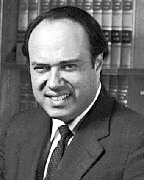Our courts in Massachusetts have held since 1991 that an apartment building must be assessed as an apartment building because a condominium conversion value of a taxpayer's property was speculative. The 1991 case is Board of Assessors of Newton v. Michael F. Iodice, Trustee (29 Mass. Appeals Court 1014). I was the attorney for the taxpayer.
The Appellate Tax Board has also held that assessing an apartment building as an apartment building is correct even if the owner recorded a master deed that made the building legally a condominium.
However, some assessors are still trying to assess the individual units in the building as condominium units even though the units have never been conveyed to condominium unit purchasers.
The assessors apparently do not believe the many cases that say the assessors cannot legally do this!
To make things easier for the assessors, an owner of such a building should terminate the condominium by recording a "Termination (Removal) of Condominium" pursuant to Section 19(a) of Chapter 183A, the Massachusetts Condominium Statute. As the owner of the building owns 100% of the "units" and has a mortgage to a lender that covers all of the "units," the Termination of Condominium is easily done by the owner with the consent of the lender.
The mortgage should be amended to change the property description from a list of the units to a metes and bounds description of the lot on which the apartment building is located.
It's not rocket science.
Saul Feldman is a real estate attorney with Feldman & Feldman, P.C., Boston, Mass.
Tags:









